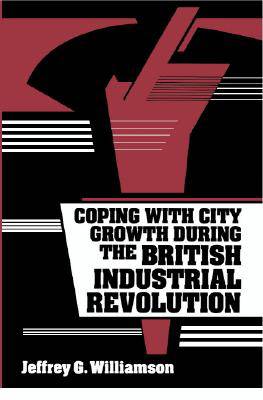
- Afhalen na 1 uur in een winkel met voorraad
- Gratis thuislevering in België vanaf € 30
- Ruim aanbod met 7 miljoen producten
- Afhalen na 1 uur in een winkel met voorraad
- Gratis thuislevering in België vanaf € 30
- Ruim aanbod met 7 miljoen producten
Zoeken
Coping with City Growth during the British Industrial Revolution
Jeffrey G Williamson
Hardcover | Engels
€ 194,95
+ 389 punten
Uitvoering
Omschrijving
Coping With City Growth assesses British performance with city growth during the First Industrial Revolution by combining the tools used by Third World analysts with the archival attention and eclectic style of the economic historian. What emerges is an exciting and provocative new account of a very old problem. The debate over Third World city growth is hardly new, and can be found in the British Parliamentary Papers as early as the 1830s, in treatises by political economists, and in the British Press. This book should change the way urban history is written in the future and influence the way we think about contemporary Third World cities.
Specificaties
Betrokkenen
- Auteur(s):
- Uitgeverij:
Inhoud
- Aantal bladzijden:
- 368
- Taal:
- Engels
Eigenschappen
- Productcode (EAN):
- 9780521364805
- Verschijningsdatum:
- 25/05/1990
- Uitvoering:
- Hardcover
- Formaat:
- Genaaid
- Afmetingen:
- 157 mm x 229 mm
- Gewicht:
- 612 g

Alleen bij Standaard Boekhandel
+ 389 punten op je klantenkaart van Standaard Boekhandel
Beoordelingen
We publiceren alleen reviews die voldoen aan de voorwaarden voor reviews. Bekijk onze voorwaarden voor reviews.











